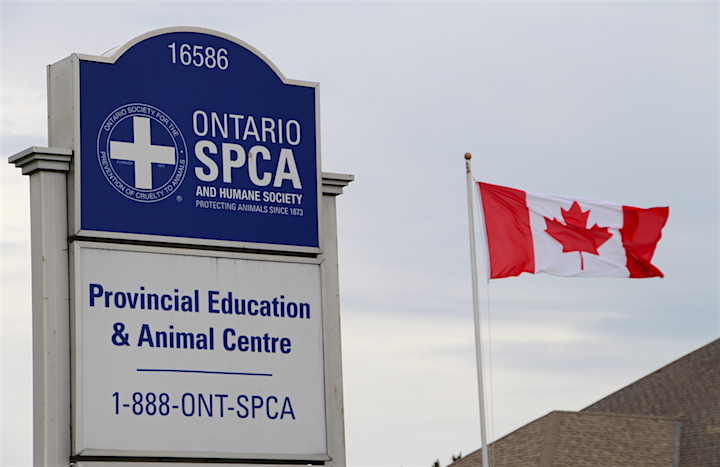TORONTO – Ontario’s top court has affirmed the now-ceded policing powers of the province’s animal welfare agency, striking down a lower court’s ruling that called into question the constitutionality of private law enforcement.

In a decision released Thursday, the Court of Appeal for Ontario said a lower court judge erred in introducing “reasonable standards of transparency and accountability” as a principle of fundamental justice.
“I have no doubt that it would be a good idea and sound public policy to make all law enforcement bodies subject to reasonable standards of transparency, accountability and adequate funding,” Justice Robert Sharpe wrote in the decision handed down by a three-judge appeal panel.
“But not all good ideas and sound public policies are constitutionally protected or mandated. Our task is not to decide what would be sound policy.”
The case stems from a lawsuit filed six years ago by Jeffrey Bogaerts of the Ontario Landowners Association. The suit challenged the Ontario Society for the Protection of Animals’ powers to investigate offences and lay criminal charges – an authority the charity has since given up.

Get daily National news
At issue was Section 7 of the Canadian Charter of Rights and Freedoms, which states “everyone has the right to life, liberty and security of the person and the right not to be deprived thereof except in accordance with the principles of fundamental justice.”

The Ontario Ministry of the Attorney General appealed the finding that the OSPCA’s powers are unconstitutional under that section of the Charter, calling the new principle of fundamental justice “imprecise and unworkable.”
Sharpe agreed, saying it did not meet any of the three criteria for judges considering whether to recognize a new principle of fundamental justice.
“Transparency and accountability … are background values that the law sometimes takes into account in various ways and in various contexts,” he wrote.
The panel of judges also struck down the application judge’s ruling that the OSPCA’s powers infringe on the charter right to liberty and security.
Sharpe noted there are intermediate steps between the OSPCA investigation and a person’s potential conviction and imprisonment.
He went on to say that overall, the question is a policy matter and out of the courts’ purview.
“The design of a proper regime of law enforcement, one that ensures that peace officers are accountable, that their actions are subject to public scrutiny and that the law is enforced with integrity, are questions of public policy, not individual legal rights,” he wrote.







Comments